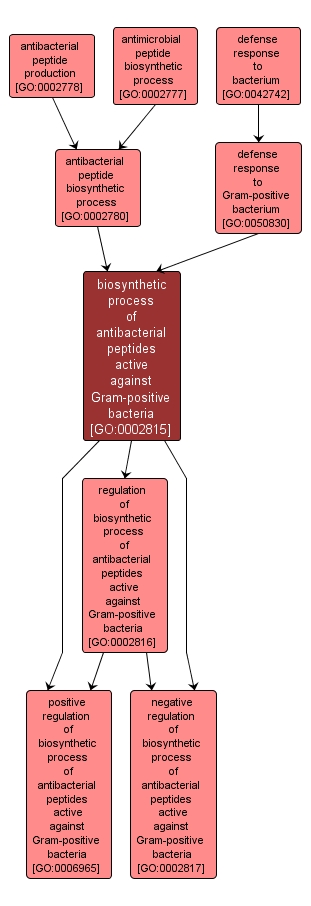GO TERM SUMMARY
|
| Name: |
biosynthetic process of antibacterial peptides active against Gram-positive bacteria |
| Acc: |
GO:0002815 |
| Aspect: |
Biological Process |
| Desc: |
The chemical reactions and pathways resulting in the formation of an antibacterial peptide with activity against Gram-positive bacteria. |
|

|
INTERACTIVE GO GRAPH
|














